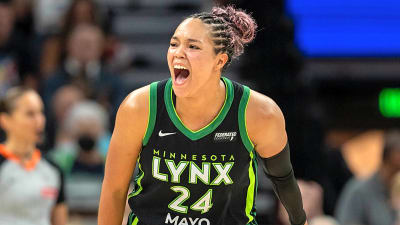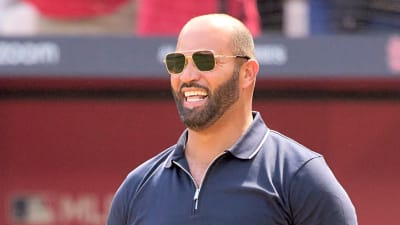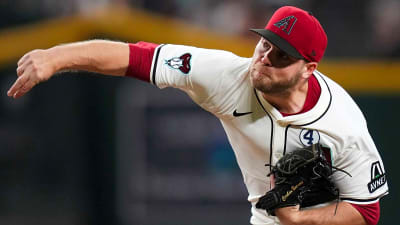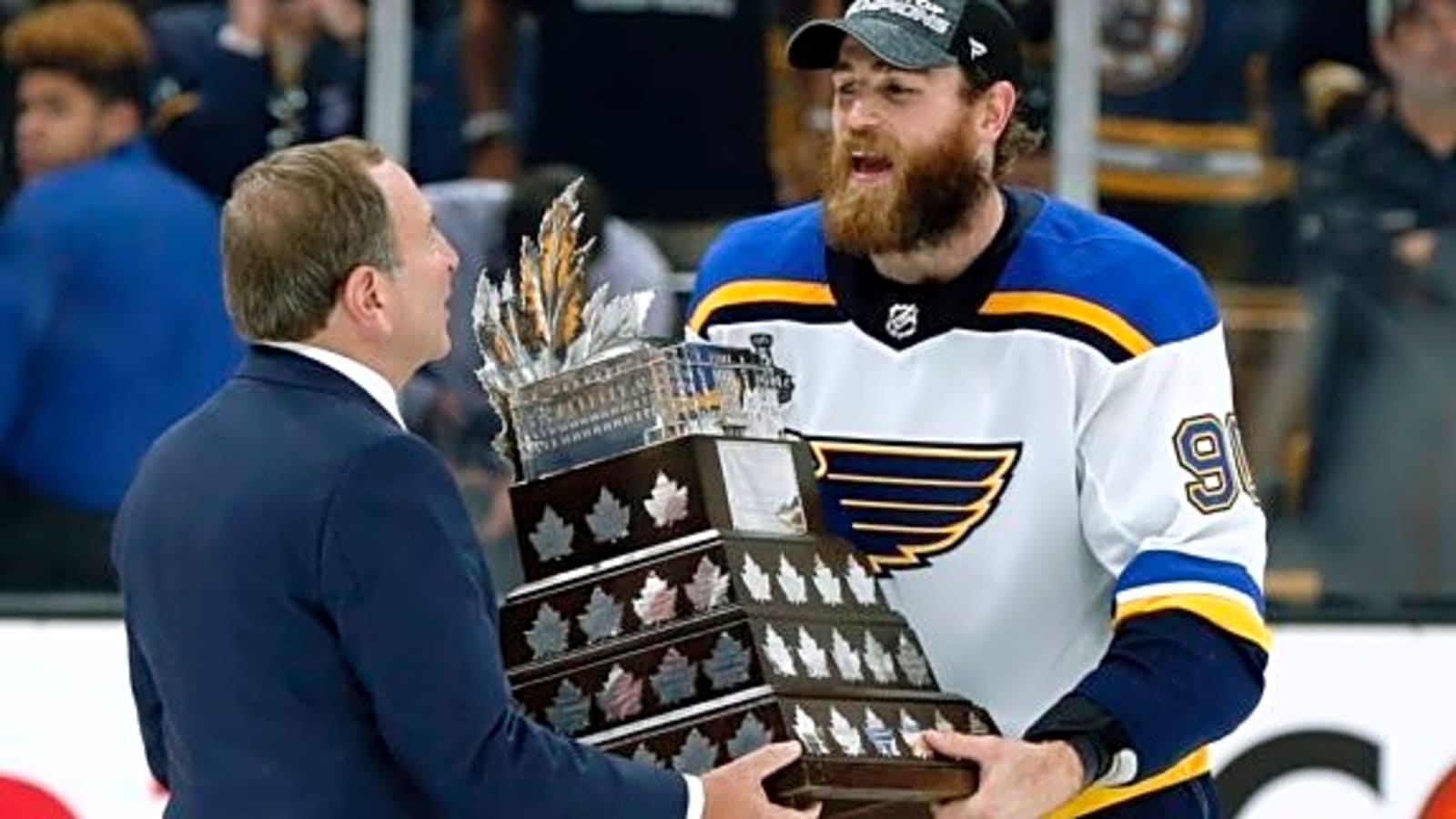
Montreal Canadiens’ general manager (GM) Kent Hughes stepped into an organization reeling from the loss of its franchise player in Carey Price, its leader in Shea Weber, and was in free fall from a Stanley Cup Final appearance to the NHL’s cellar in only a matter of months.
Hughes’ mandate was to rebuild and return a once-great franchise to its former glory, and he has been working towards that with a modern approach, based not just on accumulating skill and assets, but also on adding toughness and building a positive culture. We saw that clearly in Tuesday night’s preseason game against the Ottawa Senators in Quebec City after years of missing these traits.
Canadiens’ New Culture
A positive culture is crucial to success in today’s NHL. While there is a lot to learn from successful rebuilds by the Chicago Blackhawks and Pittsburgh Penguins in terms of roster composition and salary cap management, more can be learned from other clubs’ failures. The Buffalo Sabres have been in a constant cycle of drafting, developing, and trading young players. It isn’t that they can’t develop players; it stems moreso from their culture.
Inconsistent leadership, frequent coaching changes, and a volatile roster have prevented the Sabres from building a stable and successful culture, making it difficult to foster sustained success. It isn’t just about mismanagement of assets, either as there is a list of players who demanded a trade for various reasons – Ryan O’Reilly because he thought they had a losing mindset and Jack Eichel because he wasn’t being given control over his own physical health and recovery. Both have gone on to win the Stanley Cup with their new teams.
The Canadiens, in contrast, have built a culture based on a clear vision, aligned interests, consistent positive habits, and innovation. Hughes has empowered his staff and players to share insight and take ownership. This, in turn, has bred excitement in the fanbase, which is contagious and has helped build a positive culture that can be felt instantly.
L.J. Mooney, a 2025 fourth-round selection, told Marco D’Amico of RG.org that rather than feeling intimidated in his first NHL training camp, it quickly became an experience full of positive energy and opportunity.
“It’s a different feeling — it’s special. Once I got there and met everyone, it was great. They were very welcoming and then on the ice: it was pretty cool. Lot of great people around. And they reach out to talk here and there.”
– L.J. Mooney
The culture that Montreal is cultivating fosters optimism and provides opportunity and possibility rather than being fixated on problems. In other words, it inspires a strong problem-solving mindset and a certain fearlessness about the future. While the Canadiens are far from completing their rebuild, the new culture has played a key role in accelerating it.
Canadiens Add Toughness
Intimidation. It comes with toughness. In Montreal, one player is synonymous with that, and it is Arber Xhekaj. He has the size, but he is also mobile. He can cover a lot of territory and still play a physical brand of hockey. It is simply impossible to ignore the physical element that comes with having him in the lineup. His presence alone lets the entire roster play “bigger” as they are less intimidated by their opponents because they know that if anyone takes liberties, Xhekaj, also known as “The Sheriff”, will police the game.
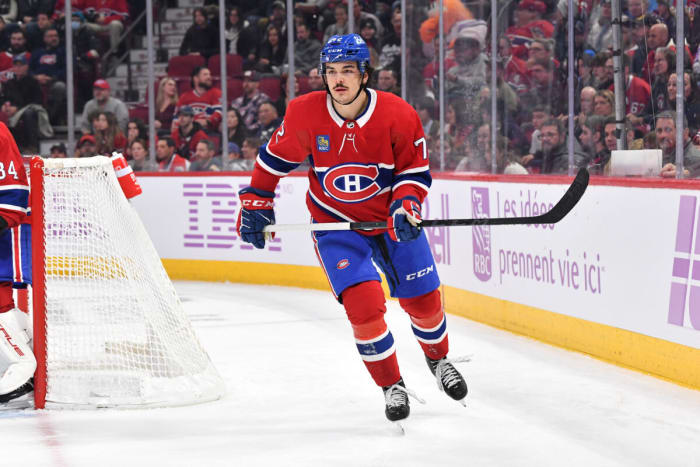
But he is no longer alone. Players like Josh Anderson and Jayden Struble can also bring a mean streak to the ice. Soon, there could be Arber’s younger brother, Florian Xhekaj, who can bring it as well. Having skilled players is important, but having Xhekaj types who can also play a regular shift is just as important: they make life hard on the opposition, which, in turn, takes the burden off the skill players. It’s something former Canadiens forward Maxim Lapierre has seen changing for the better in Montreal.
“For years, teams were just showing up at the Bell Centre and it was an easy matchup. It was just let’s go pick up two points in Montreal and nobody is going to get hurt. We won’t need ice after the game because we won’t be bruised. But this is going to change now.”
Team toughness involves a combination of mental strength, physical presence, and resilience. It means a team can adapt to challenges, persevere through adversity, and consistently perform to the best of their ability, even under pressure. This includes being physically assertive, maintaining composure in high-stress situations, supporting teammates, and finding a collective will to win, not just through physical force but also through unwavering focus and teamwork. Last night’s game against the Senators is a perfect example, as Alex Newhook explained that they were looking to play their up-tempo brand of hockey.
“That’s not the style of game we were looking to play. We did well to stay together as a group. You see that resiliency as a group where we stick together and stick up for each other. It says a lot about the group that we have.”
The game was reminiscent of the old rivalry between the Canadiens and Quebec Nordiques from the early 1980s, where brawling was almost constant. In games like that, the team lacking in toughness loses. Yet, the Canadiens found a way to not only win but also dominate. Yes, it was only a preseason matchup, but both rosters were incomplete, and while the Senators tried to be the aggressor and intimidate Montreal, the Canadiens were more than up for the challenge.
It takes time, money, and effort to build a team with toughness and a positive culture, so why would anyone do that? Well, that’s how you build a winner. Even if financial gain is the goal, the proof is in the pudding, so to speak, as the bottom line financially has improved because of these efforts and the Canadiens’ valuation has taken a major leap forward in only one year.
In the end, the right culture is the catalyst for success. It is a double-edged sword; a negative culture stifles team morale, demotivating players from taking on the responsibility to battle for others and leading them to focus only on their own needs. On the other hand, actively cultivating a positive culture like Hughes has done will lay the foundation for sustainable performance and success.
More must-reads:
- Devils keep Hughes brothers together after massive new contract
- Former first overall pick retires from NHL after 17 seasons
- The 'Last 100-yard rusher by NFL team' quiz
Breaking News
Trending News
Customize Your Newsletter
 +
+
Get the latest news and rumors, customized to your favorite sports and teams. Emailed daily. Always free!

